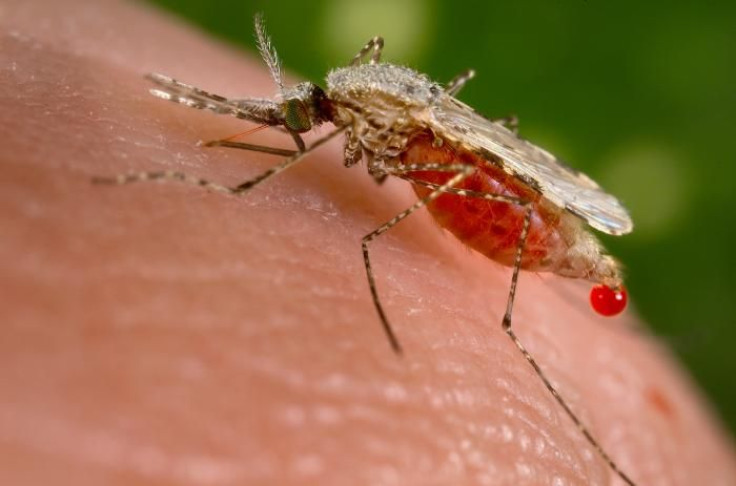Stopped In Mid Flight: Bacteria Kills Malaria Parasites In Mosquitoes

In a classic case of "fighting fire with fire," biologists in Michigan have found a bacteria strain that kills malaria-causing parasites while they are being transported in mosquitoes. The findings are reported in the journal Science (May 10).
Over half a billion people died last year from malaria; nine out of 10 deaths were in Africa and the majority were children. The disease is so widespread in the tropics that the Centers for Disease Control and Prevention recently created a web app to help people track its prevalence.
Antimalarial treatments exist, but drug resistance is becoming a serious problem in endemic regions. Public health agencies are now turning to prevention as a method for disease control.
Malaria is caused by the blood-borne parasite Plasmodium, which are transported from person-to-person by mosquitoes. Genetic engineering of a malaria-resistant insect has been proposed, but is rife with the ethical questions and scientific fears over the possible negative consequences that accompany any genetic modification debates.
The parasites, however, have a natural competitor for their winged home, a species of bacteria called Wolbachia. Wolbachia invades and travels thru the body of the mosquitoes, killing malarial parasites along the way, most likely by producing toxic oxidative stress.
This malaria-killer can also infect the eggs of female mosquitos and thus can be passed from generation to generation. This trait could make it a perfect tool for permanently stemming the spread of malaria by the insect. A similar strategy is showing great promise for the management of dengue virus, and will soon be tested in Vietnam.
To test this theory, they injected Wolbachia bacteria into 400 to 500 eggs of Anopheles stephensi mosquitoes, a major carrier of malaria in the Middle East and South Asia. They isolated one female mosquito who could pass the Wolbachia onto its offspring, and through multiple rounds of mating, created a line of insects that carried the malaria-killing bacteria.
The new mosquito line was resistant to carrying malaria, but how long would it take to transfer this Wolbachia-based immunity to a wild population? The reseachers performed a mock field trial, where five malaria-resistant mosquitoes were placed in cage with 95 regular ones.
It only took eight generations to pass the immunity, which in the wild would equal to about four months.
"These results support the potential for Wolbachia to mediate population replacement in a public health intervention strategy," wrote the team, which was led by Dr. Zhiyong Xi, an entomologist at Michigan State University.
However, the authors warn, "It is still unknown whether Plasmodium will develop resistance to oxidative stress or other Wolbachia-mediated inhibitory mechanisms in mosquitoes."



























